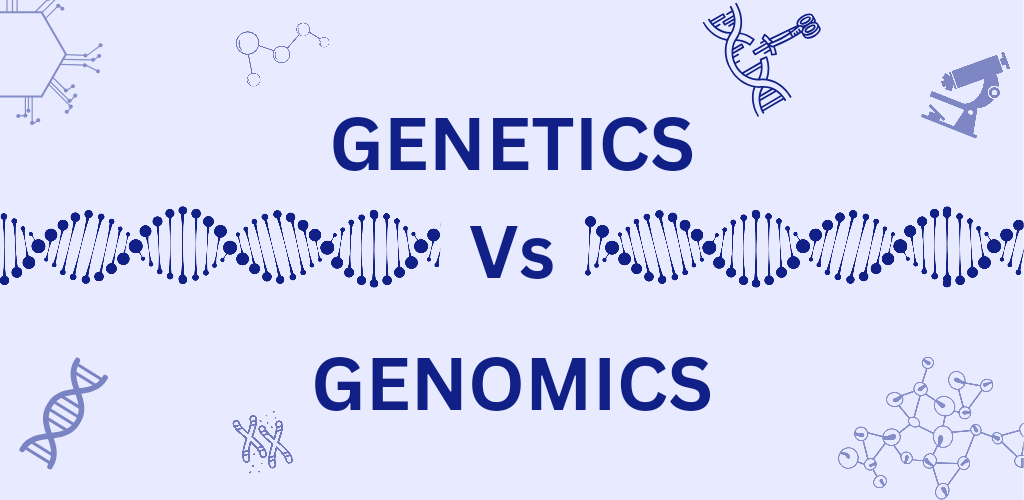The Future of Genetic Testing in Disease Prevention and Treatment
Genetic testing for disease prevention and treatment is set to advance significantly, driven by innovations in predictive genomics and personalized medicine. With increasing understanding of genetic predisposition, disease risk DNA tests and DNA health screenings are becoming integral to healthcare strategies. These tools not only identify individuals at high risk for various conditions but also facilitate tailored treatment plans, enhancing patient outcomes. The following sections delve into the key aspects shaping the future of genetic testing.
Advances in Predictive Genomics
Predictive genomics leverages genetic information to forecast disease susceptibility and inform preventive measures. Key developments include:
- Polygenic Risk Scores (PRS): These scores aggregate the effects of multiple genetic variants to assess an individual’s risk for diseases like coronary artery disease (CAD). [1]
- Machine Learning Integration: Advanced algorithms, such as Auto_ViML, enhance the accuracy of genetic disorder predictions by analyzing complex datasets. [2]
- Large scale population genomic screening: Large-scale genomic screenings have revealed previously undiagnosed genetic disorders, highlighting the potential for early intervention. However, these screenings also raise important ethical considerations. Privacy and data security are paramount, as the generation of vast amounts of sensitive genetic data necessitates robust measures to protect against unauthorized access.
Additionally, ensuring equitable access to genomic testing is crucial to prevent disparities in healthcare, particularly for marginalized populations who may face barriers to accessing these technologies.
The potential for misuse of genetic data, such as discrimination in employment or insurance, underscores the need for strong regulatory frameworks. Furthermore, informed consent is essential; participants must understand the implications of genomic testing, including the risks, benefits, and limitations. [3]
Genetic Predisposition Testing
Genetic predisposition testing identifies individuals at risk for hereditary conditions, enabling proactive health management:
- Cancer Risk Assessment: Tests can identify mutations linked to an increased risk of various cancers, allowing for preventive strategies or enhanced surveillance. For instance, mutations in genes like BRCA1 and BRCA2 are strongly associated with breast and ovarian cancers, prompting considerations for preventive surgeries like prophylactic mastectomies or oophorectomies, as well as more frequent screenings.[4]
- Cardiovascular Health: Genetic tests can stratify risk for conditions like CAD, guiding lifestyle modifications and early interventions. [1]
- Pharmacogenomics: Understanding genetic variations in drug metabolism can optimize treatment efficacy and minimize adverse effects. [4]
The Role of DNA Health Screening
DNA health screenings are becoming more accessible, providing insights into an individual’s health status:
- Early Detection: Screening can identify risk factors for diseases such as diabetes and hypertension, facilitating timely lifestyle changes. [5]
- Genetically tailored healthcare plans: Results from screenings can inform tailored health strategies, improving adherence and outcomes. [4]
- Ethical Considerations: As genetic testing becomes widespread, issues such as data privacy and genetic discrimination must be addressed. [5]
Future Trends in Genomic Medicine
The landscape of genomic medicine is evolving, with several trends emerging:
- Integration into Clinical Practice: Genetic testing is increasingly being incorporated into routine healthcare, although challenges remain in interpretation and accessibility. [4]
- Technological Innovations: Advances in sequencing technologies and bioinformatics are expected to enhance the precision and affordability of genetic tests. [5]
- Regulatory Developments: Future guidelines are anticipated to include genetic risk factors in preventive care protocols, particularly for chronic diseases [1].
Conclusion
While the future of genetic testing holds immense promise for disease prevention and treatment, it is essential to recognize that genetic testing is a tool for risk assessment, not a cure. It provides valuable insights into genetic predispositions, helping clinicians and patients understand potential health risks and enabling tailored preventive strategies. However, as technology advances, integrating genetic insights into everyday healthcare will likely transform patient management and outcomes. At the same time, the rapid expansion of genetic testing raises concerns about over-reliance on genetic data, potentially leading to deterministic views of health that overlook environmental and lifestyle factors. Balancing genetic insights with holistic health approaches will be crucial in ensuring comprehensive patient care.
References
- Mekhael, M., Bidaoui, G., Falloon, A., & Pandey, A. C. (2024). Personalization of Primary Prevention: Exploring the Role of Coronary Artery Calcium and Polygenic Risk Score in Cardiovascular Diseases. Trends in Cardiovascular Medicine. https://doi.org/10.1016/j.tcm.2024.10.003
- Reddy, P., & Dandu, R. (2024). Genetic testing for early detection and prevention of hereditary disorders. EPRA International Journal of Research & Development, 108–115. https://doi.org/10.36713/epra17731
- Forrest, I. S., Duffy, A., Park, J. K., Vy, H. M., Pasquale, L. R., Nadkarni, G. N., Cho, J. H., & Do, R. (2024). Genome-first evaluation with exome sequence and clinical data uncovers underdiagnosed genetic disorders in a large healthcare system. Cell Reports Medicine, 101518. https://doi.org/10.1016/j.xcrm.2024.101518
- Islam, Z., Khan, A., Aslam, M., Khan, A. U., & Rehman, M. U. (2025). Genetic Testing and its Role in Precision Medicine: Understand Disease Risk and Tailoring Treatments. Indus Journal of Bioscience Research., 3(1), 461–470. https://doi.org/10.70749/ijbr.v3i1.515
- Shi, C. (2024). Genetic DNA Testing: Current Applications and Future Prospects. Frontiers in Business, Economics and Management. https://doi.org/10.54097/tc834k28




